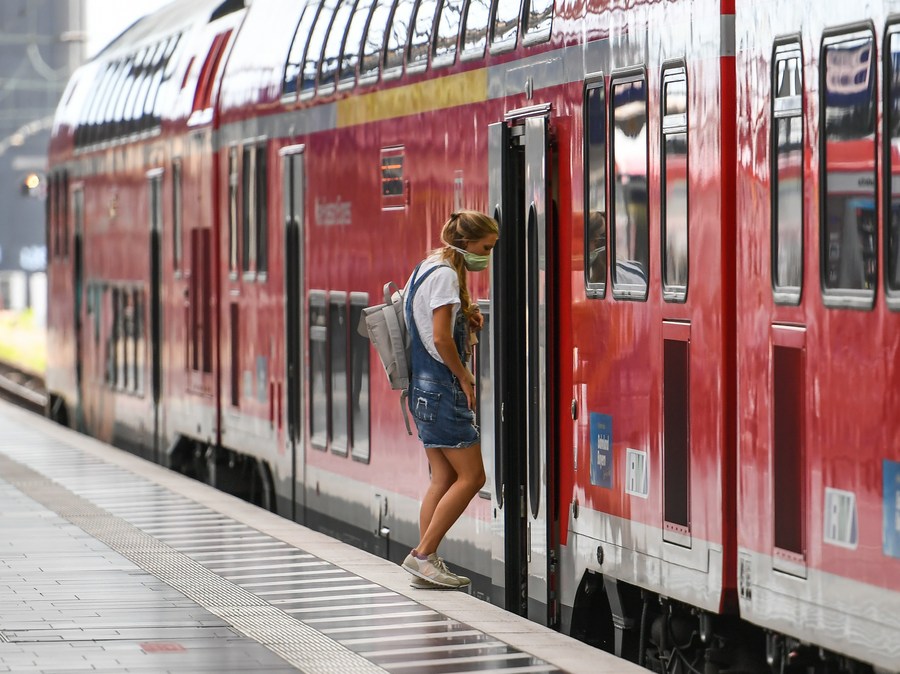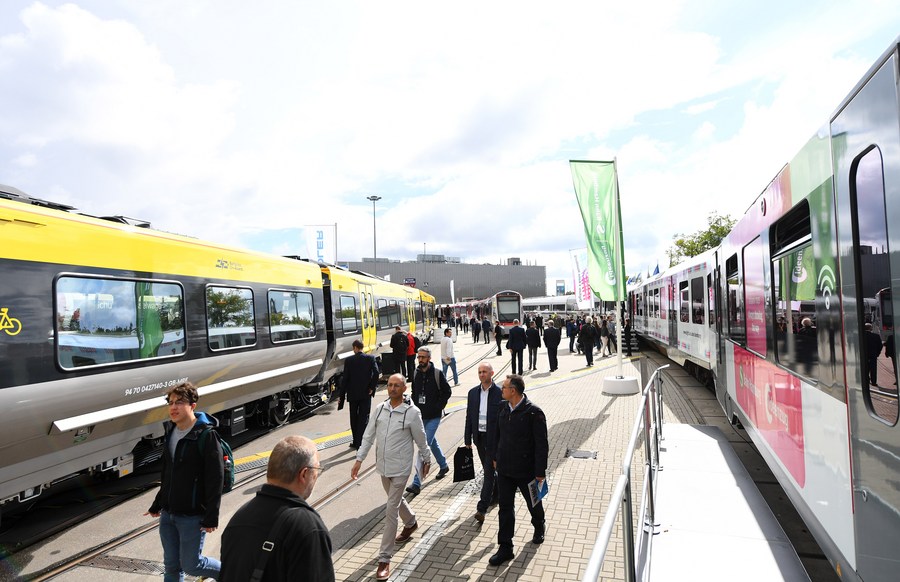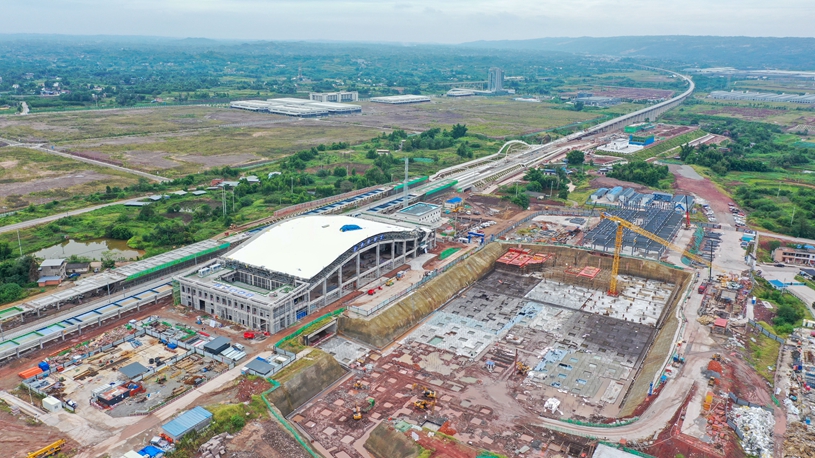
A passenger gets on a train at the central railway station in Frankfurt, Germany, on Aug. 14, 2020. (Xinhua/Lu Yang)
Germany is looking to extensively modernize its ailing long-distance train network, which is internationally known for its frequent delays. In 2022, passenger train punctuality further deteriorated by ten percentage points year-on-year, with one in three being at least 15 minutes late, according to ministry data.
BERLIN, Sept. 21 (Xinhua) -- Germany saw a 10 percent year-on-year increase in passengers on local public transport in the first half of this year, the Federal Statistical Office (Destatis) said on Thursday.
A subsidized local transport ticket costing 49 euros (51.94 U.S. dollars) per month, introduced across the country earlier this year, boosted passengers to almost 5.3 billion, Destatis said.
The Association of German Transport Companies (VDV) said 10 million people are currently using the ticket, which was originally a temporary inflation relief measure. Eight percent of customers using the ticket had never used public transport before, VDV added.
The ticket is financed by the federal and state governments, to the tune of 1.5 billion euros each annually. However, since government financing for the following years has not yet been agreed, the ticket could soon become more expensive.
VDV called for a quick agreement on this among political decision-makers.
The national government has ruled out higher contributions, and called on the states to reorganize their distribution structure to cover additional costs. "Savings must now be made so that public transport becomes better in terms of service, and unnecessary costs are saved at the same time," said Minister of Transport Volker Wissing recently.

People visit InnoTrans, a railway industry trade fair, in Berlin, Germany on Sept. 20, 2022. (Xinhua/Ren Pengfei)
According to Destatis, Germany's long-distance rail services, which had seen the sharpest decline during the COVID-19 pandemic, also recovered further in the first six months of this year. A total of 72 million passengers, 16 percent more than in the prior-year period, traveled on long-distance trains.
Germany is looking to extensively modernize its ailing long-distance train network, which is internationally known for its frequent delays. In 2022, passenger train punctuality further deteriorated by ten percentage points year-on-year, with one in three being at least 15 minutes late, according to ministry data.
To address the problem, 40 of the busiest rail lines in Germany are to be completely renovated by 2030. However, as a result of the construction work, further delays are to be expected.

People walk past a store in Berlin, Germany, on Feb. 1, 2023. (Photo by Stefan Zeitz/Xinhua)
The German government will provide an additional 40 billion euros of funding for railways in the coming years. "We need the railway as a climate-friendly mode of transport. But it can only fulfill this task if it is once again reliable, efficient, and modern," Wissing told a rail summit last week. (1 euro = 1.06 U.S. dollar) ■











